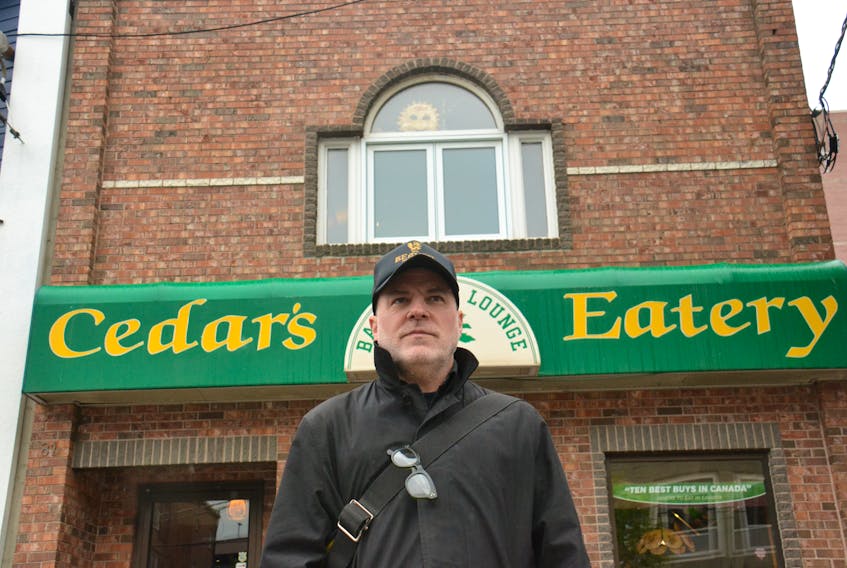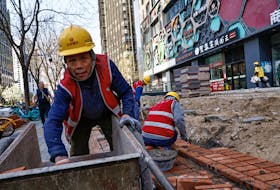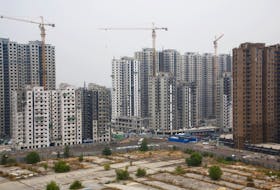CHARLOTTETOWN, P.E.I. - Greg Rivard hears concerns about the number of Airbnb units popping up in Charlottetown all the time.
The Charlottetown councillor, who serves on the P.E.I. capital’s planning board, says he has directed a staff member to create a bylaw to help regulate short-term rental accommodation on internet sites and apps like Airbnb.
Editor's note: Airbnb has gone from a two-person start-up to a $2.6-billion company in a decade. A boon to tourists, bane to renters, Airbnb now has governments looking closely. What's all the fuss about? The first in a three-part series.
Similar bylaws have been enacted by other municipalities in Canada, such as Toronto and Vancouver, albeit with involvement from their respective provincial governments.
But Rivard says the Airbnb issue has received noted attention in relation to its impact on the housing market.
In Charlottetown alone, city staff estimate around 400 rental units are on Airbnb, while the province’s Department of Economic Development and Tourism estimated there are currently 136 licensed vacation homes or apartment rental units similarly listed the area.
"I don't want to seem like it's not pressing but I don't want to make it sound like it's the focal point for what we're trying to do," Rivard said.
"That consists of a very small percentage of homes. But again, they predict that it's going to climb anywhere between 100 and 200 every year."
For renters like J.D. Hughes, the impact of Airbnb-style accommodations is obvious. Hughes, who works as a bartender at Baba’s Lounge, moved to P.E.I. from New York two years ago. Since then, he said he’s moved three times, partly due to apartments being sold while he was a tenant.
He was recently forced to move from an apartment that sold in August. His landlord, with whom he still maintains a good relationship, gave him three months’ notice.
"I saw how difficult it was for people to find things, especially with the whole Airbnb thing because you can't even get a year lease. They're all September to June,” Hughes said.
“So how are you supposed to live? How do people afford to move every eight months?"
Hughes managed to find an apartment at the end of August, after looking for two months. He said he was luckier than most.
SaltWire Network spoke with three other tenants who were in the midst of looking for an apartment. All asked that their names not be used.
One, a mother of three children, said most listings on sites like Kijiji, listed rental periods from September to May, which she believed allows for them to be listed for short-term rentals in the summer months. Another, a student enrolled in Holland College’s culinary program, said he commuted daily from Summerside, about 40 minutes away, because he was unable to find an apartment.
Rivard said the city’s new affordable housing policy, which includes tax incentives for developers who build affordable units and allows auxiliary suites, offers a more comprehensive approach to the issue of affordable housing than solely regulating Airbnb.
He estimated a bylaw focused on short-term rental accommodation would not likely wrap up public consultations until February or March of 2019.
Hannah Bell, Green Party MLA for Charlottetown-Parkdale, agrees Airbnb is not the cause of the city’s rental crunch.
"It's a symptom and it's actually one that has been successfully addressed in other jurisdictions," she said.
But Bell maintains the onus for addressing the impact of Airbnb on the rental market should fall to the province. She said sites like Airbnb have been able to collect taxes on behalf of provincial or municipal governments in other jurisdictions, the revenues from which could be used to bolster efforts to build affordable housing.
“We're pretty clear that the first step on this is provincial. The fastest route to that is for the province to negotiate directly with the service providers who are very open to that and have done it in other jurisdictions," Bell said.
In a statement, Airbnb’s public policy director Alex Dagg said the company was open to the possibility of regulation.
“Airbnb is committed to working directly with communities across Canada, to develop smart, easy-to-follow regulations,” wrote Dagg.
“Responsible home sharing strengthens neighbourhoods and generates meaningful economic impact for the province and our hosts.”
Bell said the province should work with companies like Airbnb, and that they should remit data of clients who stay on P.E.I. using the service.
"Right now you have someone in tourism literally going online and looking up listings to try and figure out a directory,” she said.
Economic Development and Tourism Minister Chris Palmer said the province already requires operators who advertise their homes or cottages on third-party websites like Airbnb to have a tourism licence. These premises are inspected yearly by government staff, who monitor safety features such as fire extinguishers, smoke detectors and washroom facilities. Airbnb and VRBO sites are regularly monitored by provincial staff to ensure compliance.
"We certainly are working hand-in-hand with Quality Tourism Services to do that," Palmer said.
Ministry staff said of the 278 Airbnb listings on P.E.I. posted as of Thursday, 206 were already licensed. Most operators, when contacted by provincial staff have opted to either obtain a licence or cease operating. No fines have been issued to operators by the province over the last two years.
Palmer said further regulation of short-term rental accommodation would fall under acceptable use bylaws, which would be a municipal responsibility.
"If organizations or municipalities have concerns about this or other things that relate to tourism, we're willing to work with everybody and try to help them find a solution together.”
But Rivard said communication between Charlottetown and the province on the issue of further regulation of short-term rental accommodations has been lacking.
“I think we're all kind of just operating in silos and just pointing the finger,” Rivard said.
“I think we need to get into the same room, at the same table and just discuss some real solutions.”









